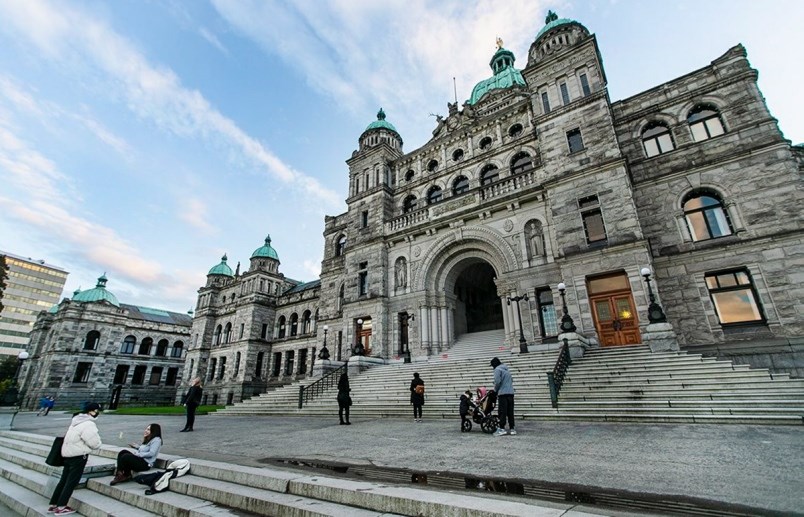The NDP government’s 2024 budget features record operating deficits and surging debt loads. The document includes no mention of any plan to return to fiscal balance—or even to narrow the deficit. It moves B.C. decisively towards structural operating deficits, compounding future debt-management challenges and risking B.C.’s reputation as a fiscally top-tier jurisdiction with an excellent credit rating.
Budget 2024 predicts a record $7.9 billion deficit in fiscal 2024-25, an amount equivalent to 1.9 per cent of GDP. In 2020-21, B.C. posted a deficit equal to 1.8 per cent of GDP. Budgeting for even more red ink than during the worst point of the COVID crisis is fiscally imprudent and ill-timed. B.C.’s unemployment rate is relatively low, inflation is still somewhat elevated and the Bank of Canada has implored governments to scale back fiscal stimulus to align with the goals of monetary policy. B.C. has firmly rejected the governor’s advice.
The eye-watering deficit flows from the government’s plan to deliver sizable spending increases as revenue growth slows. The government’s spending trajectory also “bakes in” and adds to record spending increases in earlier budgets, when the government opted to spend massive “windfall” revenues from supercharged resource revenues and a large but temporary lift to corporate income tax collections.
Understandably, the government is responding to visible stress in the health-care system, portables at schools and other pressures aggravated by B.C.’s fast-growing population. The planned spending increases, however, are three-to-four times population growth. Per-capita health expenditures rise 11.1 per cent in 2024-25, social service spending goes up by 11.4 per cent and education spending climbs by nine per cent. These outsized increases follow several years of significant per-capita spending growth in earlier budgets.
Budget 2024 also outlines a large $4 billion increase in taxpayer-supported capital spending from 2023-24, boosting capital outlays to $14.1 billion in 2024-25. The following year sees a further jump in taxpayer-supported capital investment to $15.1 billion before it eases back to $14.1 billion in fiscal 2026-27.
The combination of record-breaking deficits and record levels of capital spending envisioned pushes taxpayer-supported debt $16 billion higher in 2024-25, with even bigger increases planned for the next two years. The province will spend $4.1 billion servicing this debt in 2024-25, equal to 4.6 per cent of total expenditures and more than it will spend on social services. By 2026-27, debt service costs grow to 6.1 per cent of overall spending and 1.7 times planned social services expenditures. Higher debt-servicing costs mean the province has less money to devote to programs and services.
Ongoing deficits and steadily escalating debt servicing costs are not sustainable. At some point the province will have to restrain spending. It is worth noting that the spending trajectory in Budget 2024 has per-capita expenditures on health, education and social services flatlining or even declining slightly beyond 2024-25. That scenario strikes us as far-fetched given the current government’s track record and policy inclinations.
Meanwhile, the outlook for private sector growth is softening. Hiring for payroll jobs in B.C.’s private sector has stagnated. Private-sector capital investment is also falling. Yet rather than proposing a growth-oriented policy agenda with a focus on attracting capital investment and high-value business activity, both Budget 2024 and the NDP government’s CleanBC Roadmap will dampen business investment and slow economic growth—as the government’s own modelling shows.
As revenues are pinched amid the coming downshifting of B.C.’s growth potential, the NDP government may be tempted to further expand services and continue running operating deficits. At some point, policymakers will invariably look to increase taxes to shore up revenues and pay for a significantly larger public sector—particularly as government itself has now become the province’s principal “growth” industry. B.C. can ill afford further tax increases—we are already uncompetitive in both business and personal taxes. Going forward, we expect that business leaders and investors will be looking at B.C. with more cautious eyes.
Jock Finlayson is chief economist of the Independent Contractors and Businesses Association. Ken Peacock is the Business Council of B.C.’s senior vice-president and chief economist.




